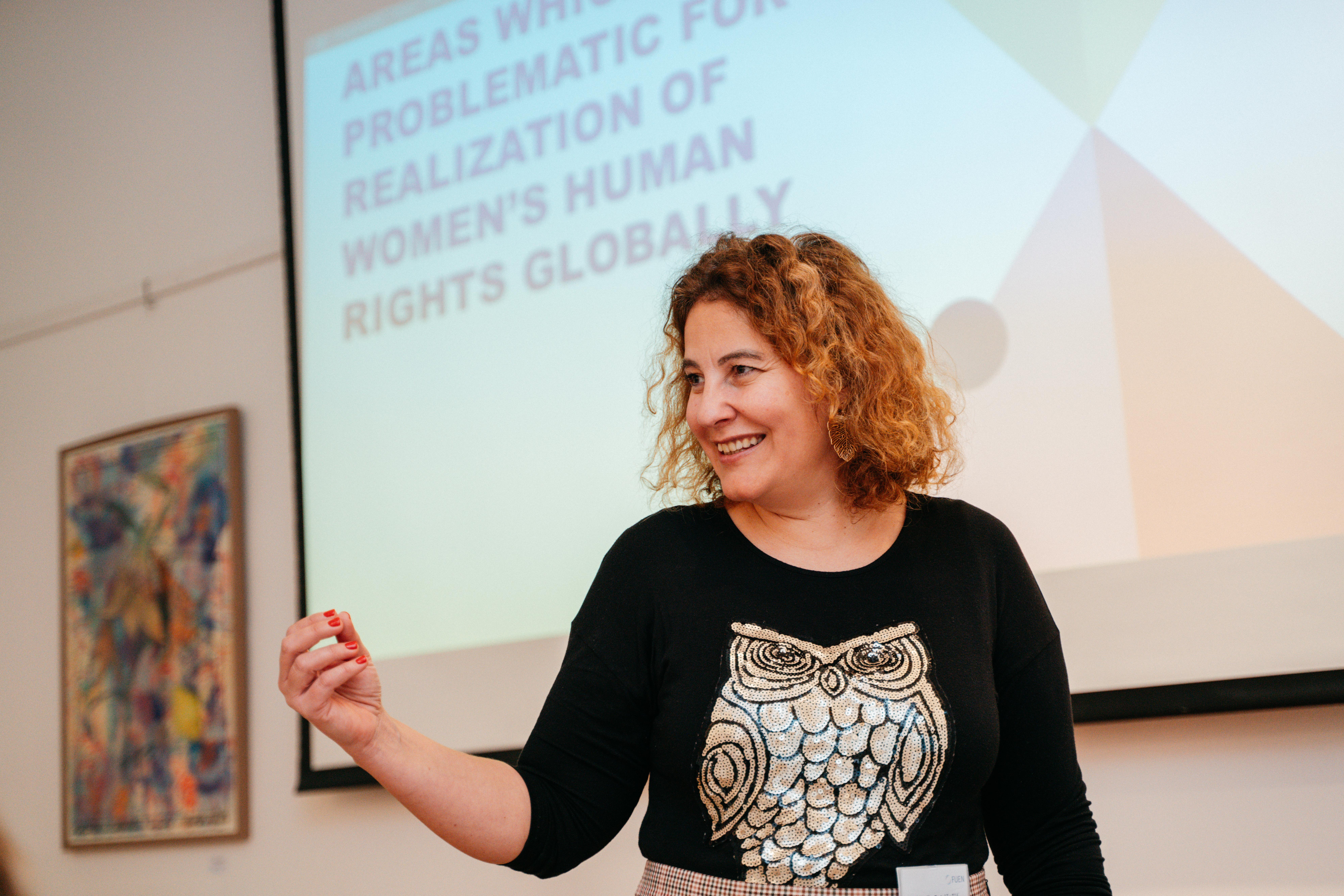
"Change must come from within and begins in the mind": Workshop collects important ideas for more gender equality
27.11.2023Quotas for women on boards of directors, the establishment of a women's network or regular surveys on gender equality in minority organisations: we were bubbling over with ideas when our first workshop in the still young FUEN project Women of Minorities took place at the Croatian Centre in Vienna from 21 to 22 November. Around 20 participants (yes, including one man, commendably) from ten countries and ten minorities, from the Catalans in Spain to the Montenegrin community in Albania, took part, engaged in fruitful discussions and had many good ideas on how to advance the topic of equality in minority organisations. The Youth of European Nationalities (YEN) was also represented and actively involved in the discussions.
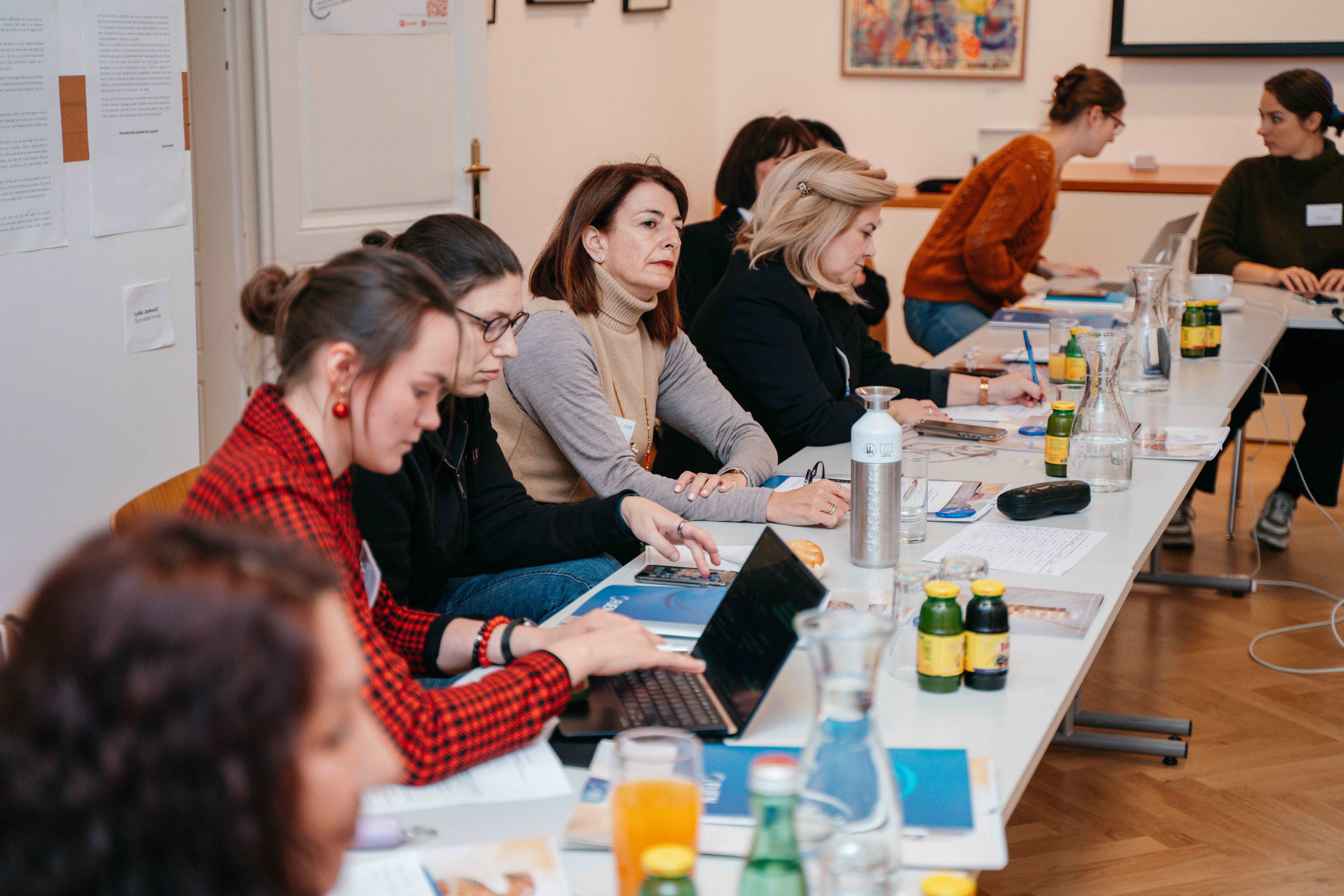
The event kicked off with expert presentations on international equality standards. "Change will not just happen. The gender equality plan is an invention to raise interest in the topic, but it is often not implemented in practice," emphasised Antonija Petričušić (see cover photo), Associate Professor at the University of Zagreb, Department of Sociology. She presented international equality standards such as the UN conventions and the UN Sustainable Development Goals, which also include women's rights, but pointed out: "Referring to UN standards is not enough: these standards are not enough, action must be taken from within."
As our internal FUEN survey last year made clear: in principle, women are well represented in minority organisations, but mainly in the operational area. In contrast, men dominate in leadership positions, i.e. on executive committees or boards.
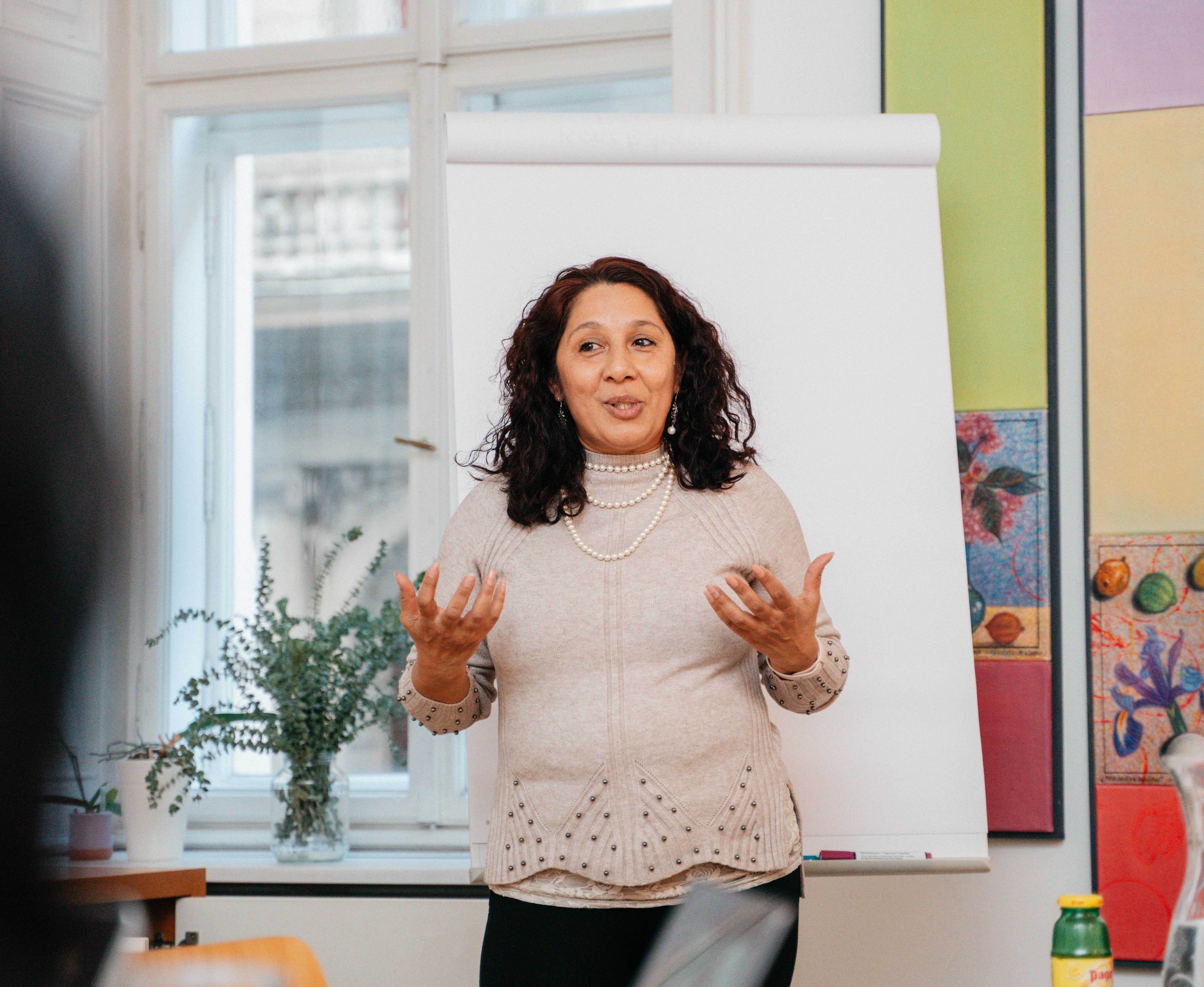
Anna Orsós (photo) from the European Roma Rights Centre (ERRC) presented the problems of the Roma in relation to gender equality and made it clear: "Change begins in the mind". According to her, most rights violations are committed by the state and she criticised the fact that financial support often does not reach the Roma and they are therefore never able to catch up.
Both speakers emphasised that in a world where men hold the powerful positions, they must be included in the discussion and convinced that the support of men is essential to initiate change.
"Gender equality norms as a tool to combat discrimination" was the title of our two-day event – and that's why we didn't want to stop at the specialist presentations. In the following, various participants presented the regulations on the topic of equality and corresponding measurements in their organisations. For example, quotas for women on management boards or at conferences, individual coaching sessions and regular surveys on the status of gender equality and discrimination were presented as successful instruments.
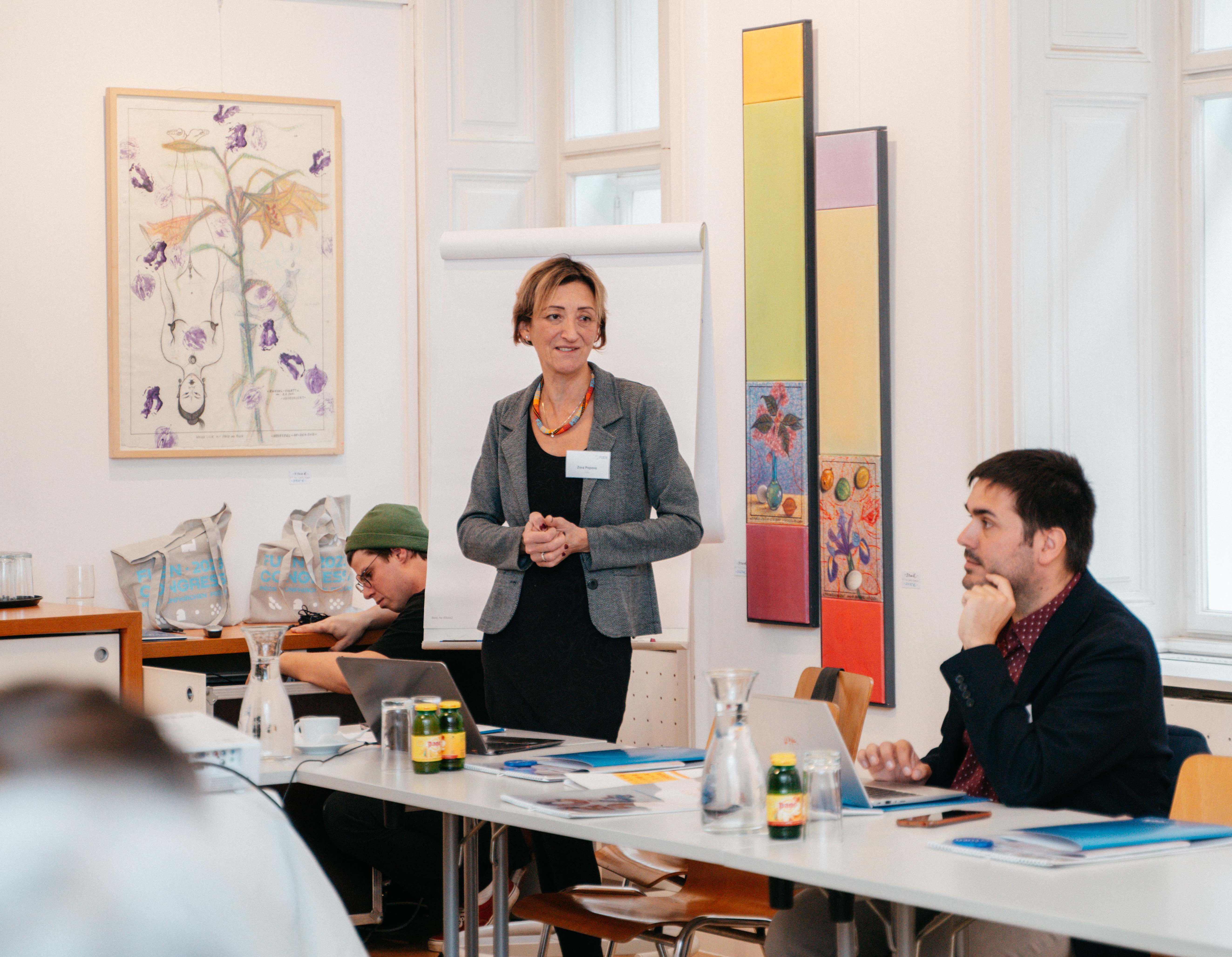
FUEN scientific officer Zora Popova organises the Women of Minorities project.
Things became even more practical on the second day of the event, when the participants worked together to develop concrete ideas and measures for greater gender equality in minority organisations and as guidelines on the part of FUEN. Monitoring is seen as particularly important, which means that equality standards and equality itself are regularly reviewed. Parity should be ensured in committees and when selecting experts. Quota regulations could also be a helpful instrument. In addition, everyone would like to see even greater awareness created with informative videos/reels. Such a video series with portraits of women who have paved their way is currently being produced as part of the FUEN project "Women of minorities". In addition, more networking needs to take place and work needs to be done on changing the role of women in society in general. The overall message: women need to be made more aware in order to initiate a change in roles.
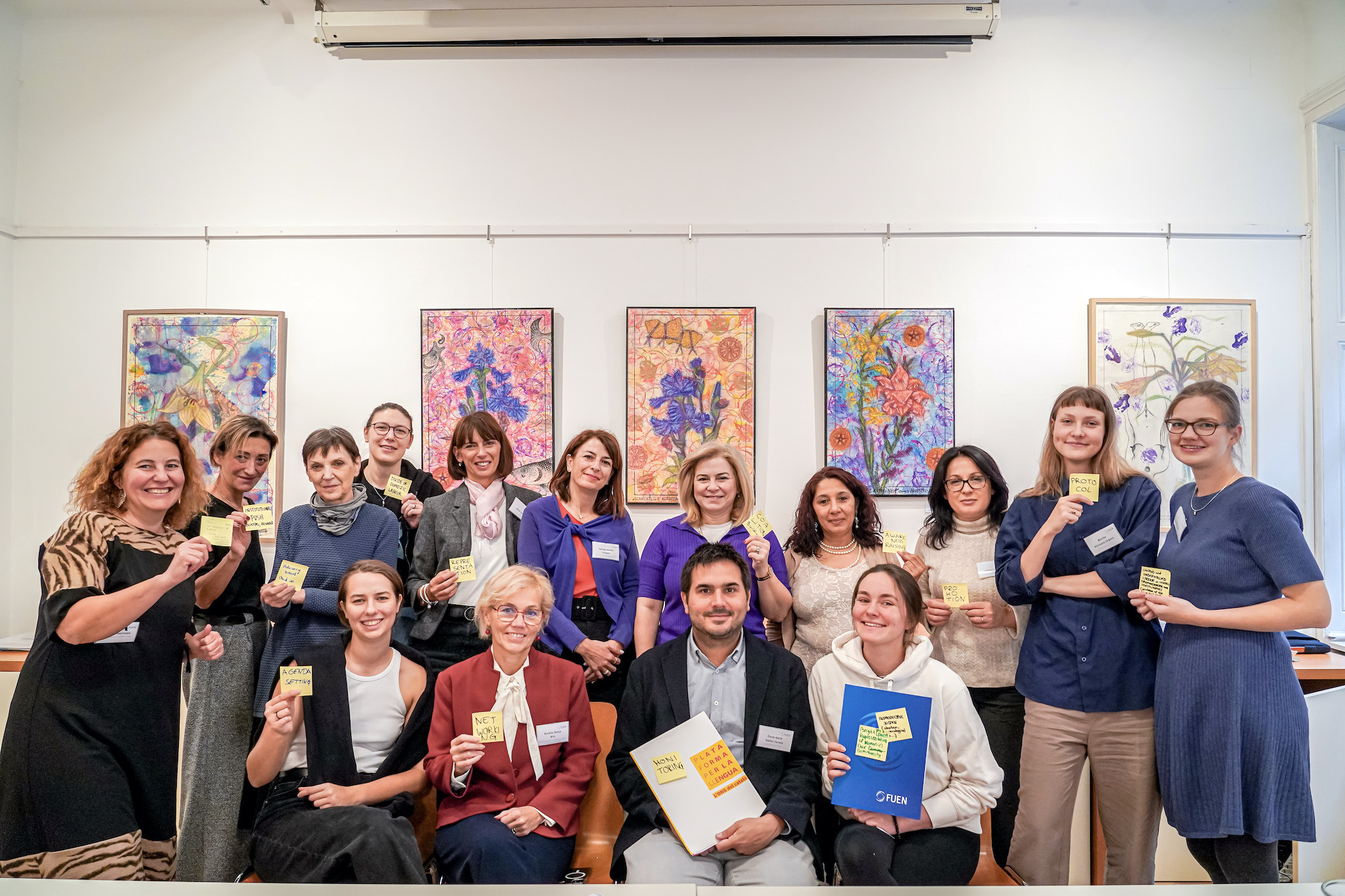
At the end of the event, the participants emphasised how important it is to continue working on the topic and that further ideas and events are also welcome.
At the end of the event, the participants emphasised how important it is to continue working on the topic and that further ideas and events on this topic are also welcome.Our heartfelt thanks go to the hosts from the Croatian Centre in Vienna, who actively helped with the planning and implementation of the event and made their premises available, as well as to the Federal Ministry of the Interior and Homeland of the Federal Republic of Germany for funding the project.
Photos: Ralph Darabos
Click here for the photo gallery
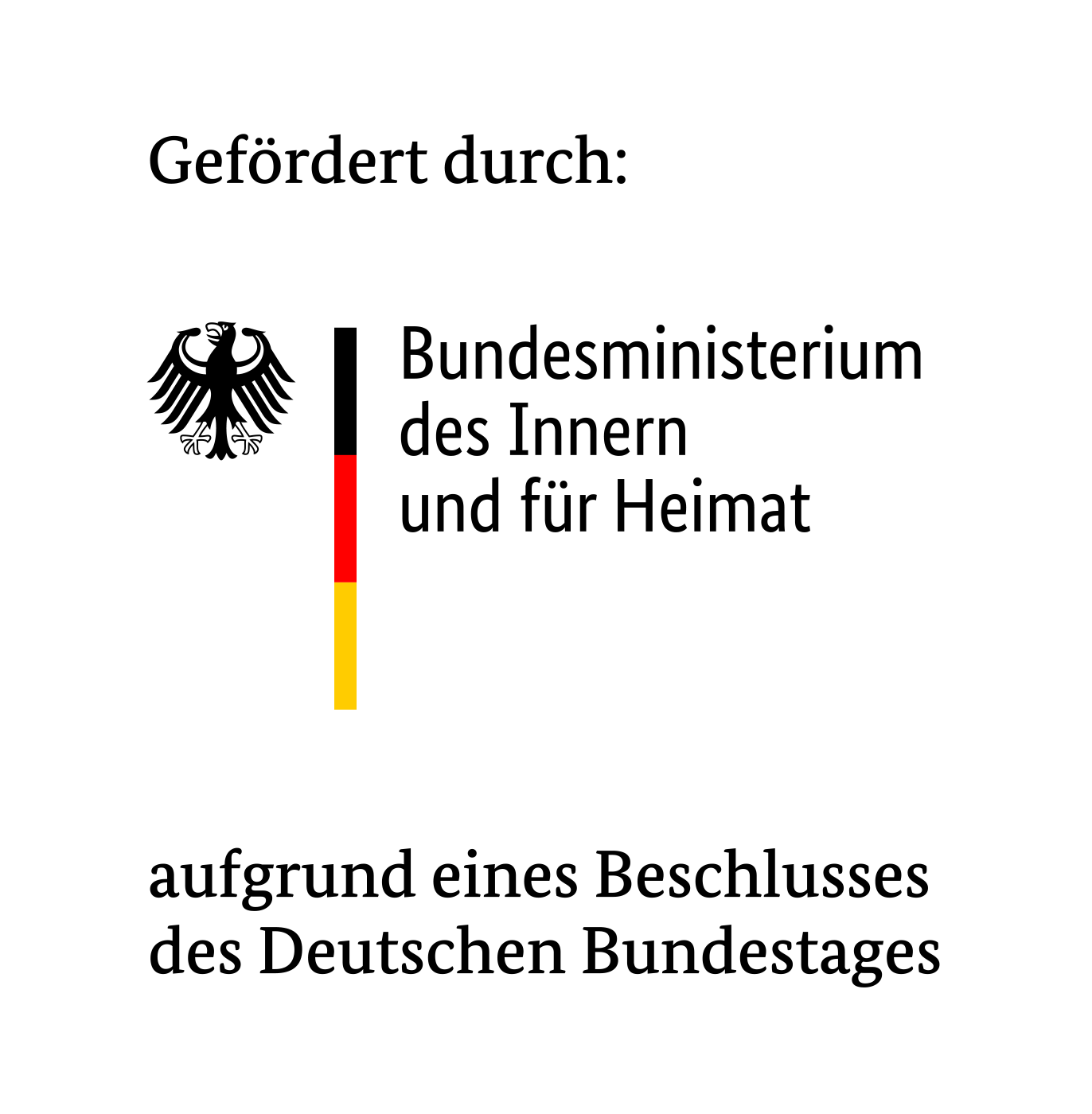
PRESS RELEASES
- FUEN wishes you a peaceful Christmas season, restful days and a bright, hopeful start to the new year!
- FUEN calls on the EU to act over systematic ethnic-based land confiscations in Slovakia
- Women of Minorities conference in Budapest calls for structural change to ensure equal political participation of minority women
- FUEN President Olivia Schubert at UN Forum on Minority Issues in Geneva
- "Laboratory of Peace": 28th Seminar of Slavic Minorities held in European Capital of Culture Gorica/Gorizia
- Equality in Political Participation and Representation: Third “Women of Minorities” Conference to Be Held in Budapest
- FUEN Working Group on Education discusses challenges and future of minority schooling in Europe
- 28th Seminar of Slavic Minorities in Europe to take place in Gorica/Gorizia, Italy
- Olivia Schubert in her first interview as FUEN President
- FUEN Assembly of Delegates elects new leadership – Olivia Schubert becomes new President














